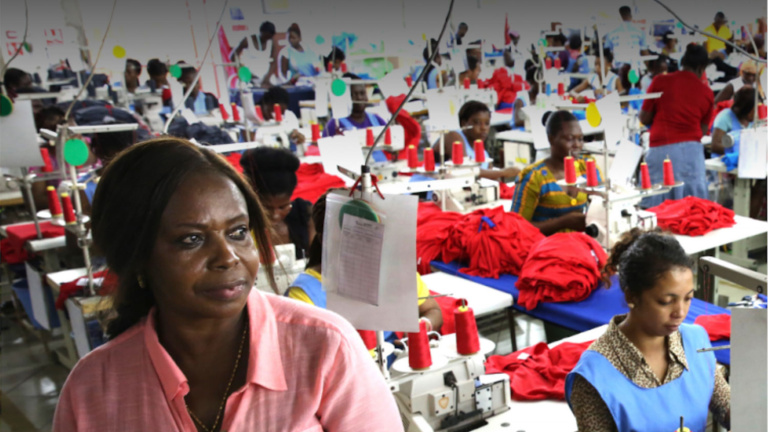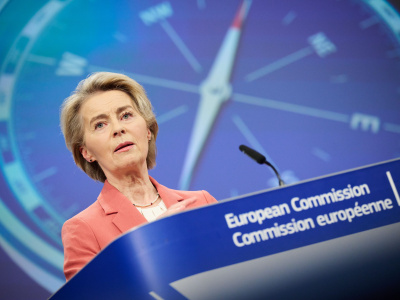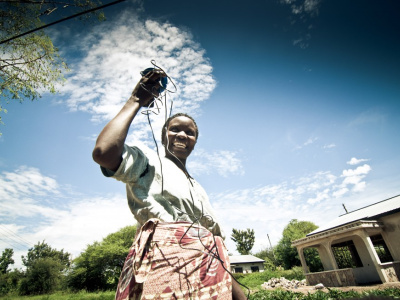
It takes a village: Why the compact with Africa might just work
Under the G20 Compact with Africa (CwA), investment environments are set to change, but it will take the collective commitment of all the Compact stakeholders. Economic transformation in Africa also depends on the private sector, so the CwA is an important part of the equation. Will it be enough?
There is an old proverb – often attributed to Africa, and sometimes specifically to Nigeria – that “it takes a village to raise a child”. Hillary Clinton brought the proverb to literary fame as the title of her 1996 book, “It takes a village: and other lessons children teach us”, but it is also applicable to increasing investment in Africa. It will require all stakeholders working together towards a collective goal with mutual accountability.
The Compact with Africa
Under Germany’s presidency, the G-20 launched a Partnership with Africa initiative. One of the primary components is the Compact with Africa (CwA), which was established in March 2017. Its primary goal is to promote private investments in Africa, particularly in infrastructure. The CwA is different from many past approaches in that it is truly a “compact” without the promise of grants, credits or loans to African governments in return for progress on policy reforms. Likewise, all members of the compacts – African Governments, G20 Governments and three international financial institutions (IFIs) (the World Bank, International Monetary Fund (IMF) and African Development Bank (AfDB)) share mutual commitments and monitoring.
The CwA started with seven African countries (Côte d’Ivoire, Ethiopia, Ghana, Morocco, Rwanda, Senegal, and Tunisia) and has expanded to 11 adding Benin, Egypt, Guinea and Togo, and with more countries showing interest. Essentially the African governments commit to policy reforms that will improve their macroeconomic, business and financial frameworks; the G20 countries in turn commit to enhanced investment promotion in those countries, while the IFIs commit to increased technical assistance to support policy reform.
The CwA is not perfect. It was initiated by a quasi-formal grouping of the world’s largest economies, of which many are often not aligned on issues of global importance, and which has an annually rotating presidency that leads to a proliferation of initiatives. Likewise, the CwA, as with most compacts, depends on mutual accountability. One could also argue that the world’s richest nations should be supporting private investment in all African countries, not only special initiatives in a few (it should be said though that in principle membership in CwA is open to all African countries, and based on the principle of domestic ownership and commitment to reforms).
But the CwA does provide a platform for African governments, the most economically developed countries, the IFIs and the private sector to work together on aligned mutual interests – and that is a good start, particularly in an era where globalisation and deeper regional integration at times seems to be under threat.
Governments and private sector aligning on key reforms for improving investments
A defining feature of the CwA is that African governments self-identify the policy actions they need or want to undertake to enhance investment. This ideally helps ensure they are responding to the needs of the private sector – rather than to donors or lenders. Given the differences among CwA countries, the policy commitments vary widely, but there are certainly commonalities, some of which are outlined below: tax administration, public investment or special economic zones (SEZ) for instance. Of course, changing policy is the challenge, but it is also an opportunity to improve the policy environment to spur investment.
The CwA countries have each developed policy matrices, but there are defining factors shaping how – across eleven countries – they are attempting to leverage private sector finance. In surveys of the private sector, these policy issues are repeatedly identified as obstacles to investment, so it is positive to see these challenges being taken up by African governments.
Innovation in tax administration benefits all
The Ministers of Finance from the CwA countries identified domestic resource mobilisation as a priority early in the CwA process, with the African Center for Economic Transformation (ACET) supporting a CwA peer-to-peer learning platform for the African governments.
This has a doubly positive impact as the private sector will be more likely to invest if tax policy is coherent, transparent and fair. Likewise, governments are likely to increase overall domestic resource mobilisation if all taxpayers meet their obligations under the law.
Some countries, such as Côte d’Ivoire and Guinea are moving towards online tax payments; while others, such as Senegal are modernising tax regimes for corporates, including replacing tax holidays and exemptions with straightforward tax rates.
Public investment is critical for success
With the recognition that the private sector is not going to fully finance most infrastructure investments, and that many infrastructure projects will require sovereign financing to lead, many CwA countries are giving due attention to improving public investment. Ethiopia has identified strengthening public investment management as a priority, while Egypt has identified the reform of appraisal, selection and monitoring of public investments as critical to ensure overall investment in infrastructure is adequate and effective.
This focus on public investment is critical as public investment supports the delivery of primary public services and supports key economic infrastructure, such as transport, water, energy and telecommunications. A few years back, the IMF indicated that each percentage point of GDP increase in investment spending increased the level of output by about 0.4 percent in the same year and by 1.5 percent after four years. The provision of key services and increased overall output are both important criteria for private sector investment.
Pace and place do matter for investment
Nearly all CwA countries are also committing to accelerating frameworks for the construction of industrial parks, SEZ and similar sites for investment. Many African governments also made commitments to improve the performance of utilities.
Senegal’s SEZ “Triangle Dakar-Thies-Mbour” is the most ambitious. It proposes to have its own regulatory framework, including regarding labour conditions and wages. In Benin, the Special Economic Zones Act has been adopted to provide investors with security and incentives, and with plans to make the labour code more flexible for investors. In Rwanda, there are policy commitments to facilitate access to infrastructure for businesses through the development of industrial parks.
Collective action
There is a wide array of additional policy commitments by CwA countries, to include issues relating to macroeconomic performance, public-private partnerships, investment promotion and de-risking instruments, but the success or failure of the CwA will not lie in which policy actions are identified – because they all need to happen. The success or failure of the CwA will depend on whether the village of stakeholders acts in good faith, meets its commitments and creates an environment for private investments to flourish and more broadly for economic transformation in Africa.
About the author
Rob Floyd is Director and Senior Advisor at the African Center for Economic Transformation (ACET) which is based in Accra, Ghana.
www.acetforafrica.org
E-Mail: rfloyd@acetforafrica.org
twitter: @RobFloydACET
Read the full magazine issue









